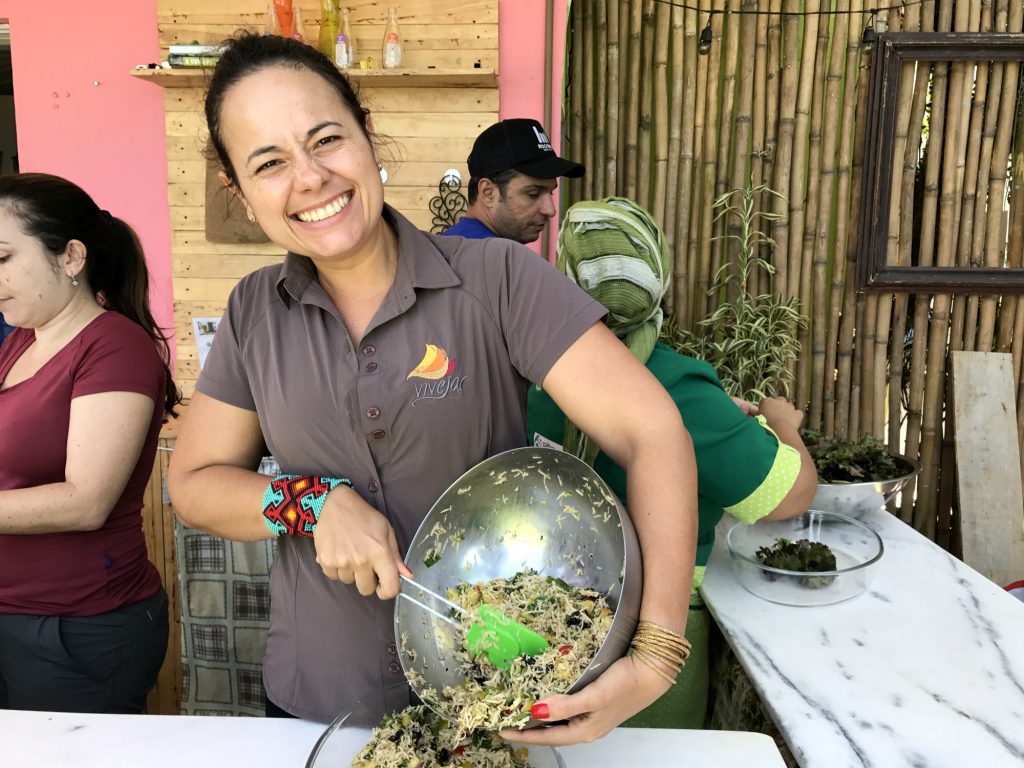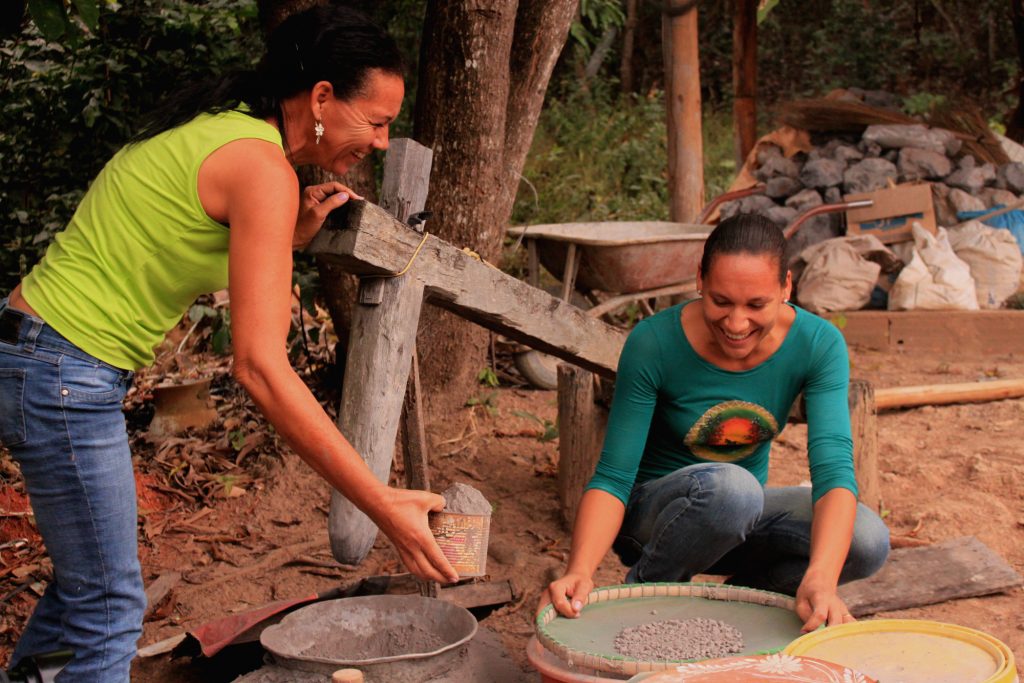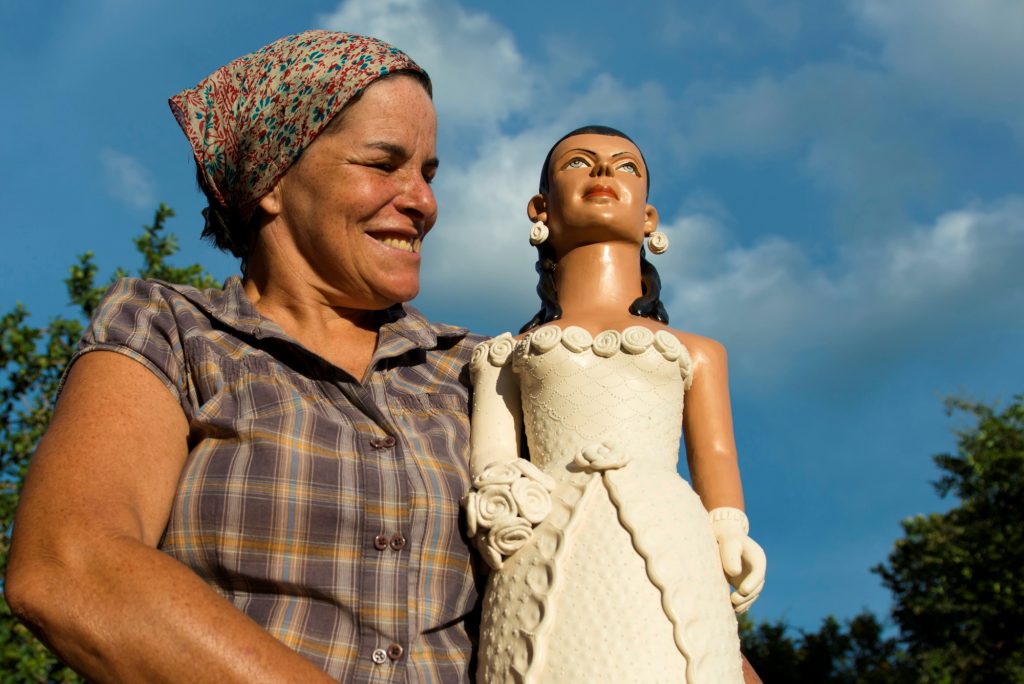Nearly 10 years ago, Marianne Costa decided she wanted to work in social development — a decision that has led her into the kitchens and backyards of Brazilian women working hard to preserve their local culture, earn an income, and support the livelihood of their communities. Having fostered these relationships over several years in a private consultancy business, she launched Vivejar with an eye focused on women’s empowerment and community-based tourism. Costa offered insight into Vivejar’s collaborative projects and what other tour operators should know before launching community-based initiatives.

ATTA: What drove your desire to create this company founded on sustainable travel practices and empowering local communities?
Costa: Vivejar was launched in 2016 after 10 years of working in a consultancy called Raízes Desenvolvimento Sustentável, which I co-founded with a friend, focused on tourism and local sustainable development projects in Brazil. My partner, Mariana, and I started working on a project focused on helping artisan women from a very dry and poor region of my birth state, Minas Gerais, to sell their handcrafts. This project in Vale do Jequitinhonha grew to become a very successful experience. We noticed that taking people to visit the communities — instead of only bringing the handcrafts to them — was much more sensitive and significant. People wanted to hear those women’s stories. This was our first community-based tourism project and the one that inspired the creation of Vivejar.
After almost four years of very good results in terms of income generation and women’s empowerment, I realized I wanted to expand the same experience to other communities in Brazil. My business partner decided to keep the consultancy and I moved forward to launch Vivejar based on our first itinerary, which we call “From Clay to Art.”
ATTA: What is the process like to establish relationships with local communities? What steps do you take to ensure the encounters your clients have benefit both the local communities and the travelers?
Costa: When we approach a community to evaluate its potential and interest in working with tourism, our first aim is to establish a strong and trustworthy relationship with them. Secondly, we develop collaborative work that involves training people and communities to receive tourists as well as the joint development and co-management of the itineraries. All the work is done together and transparently — from decisions about itinerary activities to the distribution of travel profits. It is important to set expectations from the beginning. We discuss how this is one alternative to income generation, but it’s not the only alternative.
Our itineraries are focused on community-based initiatives, where local communities are fully responsible for tourism activities in the region, and, from them, they get their sources of income, development, and cultural preservation. Beyond communities, the tours emphasize the strength and role of women in tourism, not only as travelers but also as the main hostesses in the destinations visited. Our commitments are to provide a complementary economic activity for local communities, promote and encourage social inclusion, provide opportunities for income generation, strengthen women’s empowerment, and support material and immaterial historical, cultural, and natural heritage.

In order to guarantee our clients get the most out of our experiences in a transformative way, we build a narrative into our itineraries that tells the stories of those communities and develop strong connections between our travelers and the local people. In all experiences, we have a “Vivejar host,” who is a skilled person facilitating the dialogue and exchanges between both groups. In the end of the journey, we always get the groups together to talk about the experience and exchange impressions.
ATTA: Women's empowerment is something you are clearly passionate about. Can you give us some examples of how you've seen community-based tourism support their personal and professional needs and initiatives?
Costa: Our focus on women is something that is aligned with social development projects around the world like microfinance. We know that women are very committed to collective development and that’s why we focus on them. They think about the family, neighbors, and the community. They share the benefits, and this is an important value and priority that we have.
Our first community-based tourism initiative, developed in Vale do Jequitinhonha, gave us a clear vision of how tourism helped to support local artisan women. Our purpose is to bring tourism as a second opportunity for income generation and work, but always by reinforcing the community’s local culture. In Vale do Jequitinhonha, after training local women to be ready for tourism, they are now able to receive travelers independently in their homes. But the great benefits were empowering these women and encouraging their self-esteem, and also helping to promote and strengthen their local pottery tradition. The trip is focused on these women and their artwork. Travelers learn how to make a pottery piece and hear stories of how the artisans began working with it. Visitors are always amazed by the careful and dedicated production process and are happy to bring home some of their pieces.
In Morro da Babilônia, Rio de Janeiro, our partners are entrepreneurial women who fight to generate impact and benefits within the communities. One of them, Regina Tchelly, has developed a beautiful project on food reuse to educate the community about having a different relationship with what they eat.
We are also seeing a great positive impact in Ilha de Cotijuba, Pará, where women were already working hard and living with the income of selling typical agricultural products and arts craft. Tourism added to and strengthened their culture and income generation opportunities. These positive impacts were confirmed in our newly released Sustainability Report, which reveals the initial stages of these communities and the changes tourism brought to them.
ATTA: What are your travelers surprised to learn when they meet the women who lead these projects?
Costa: Travelers are always surprised with how much they have in common with these women, independently of distance and different cultures. When they connect to the community, they learn these women have the same issues as us, like struggling to balance work and taking care of the family. Visitors are also amazed by how strong, intelligent, independent, and, at the same time, united these women are — how they managed by themselves to organize and sell their work and the openness and care when they welcome visitors.

ATTA: What advice do you have for other women interested in establishing sustainable, community-based travel companies
Costa: It’s something you should do if you really love and are passionate about it. It’s not simple tourism. It’s a lot about trust and more about personal relationships. We aren’t working with companies; this is about personal relationships. For people to have success, they must be real. The work and social development needs to come from your heart. It’s not all about business. It’s more about passion and commitment.
It is also important to have a solid knowledge about responsible and community-based tourism so you can distinguish clearly when an experience has a positive impact for locals and when it doesn’t.
This article is part of an Adventure Travel Trade Association (ATTA) initiative addressing important topics identified as critical to the protection and continued advancement of the adventure travel industry. Each initiative — eliminating plastics, women in leadership, climate action, and young leaders — has a dedicated team focused on building awareness of, advancing educational opportunities in, and creating a lasting impact on each of these areas within the adventure travel industry. We invite you to visit the ATTA’s initiatives page where you can access reports, read the latest news, participate in active projects, and join conversations within the membership community.
